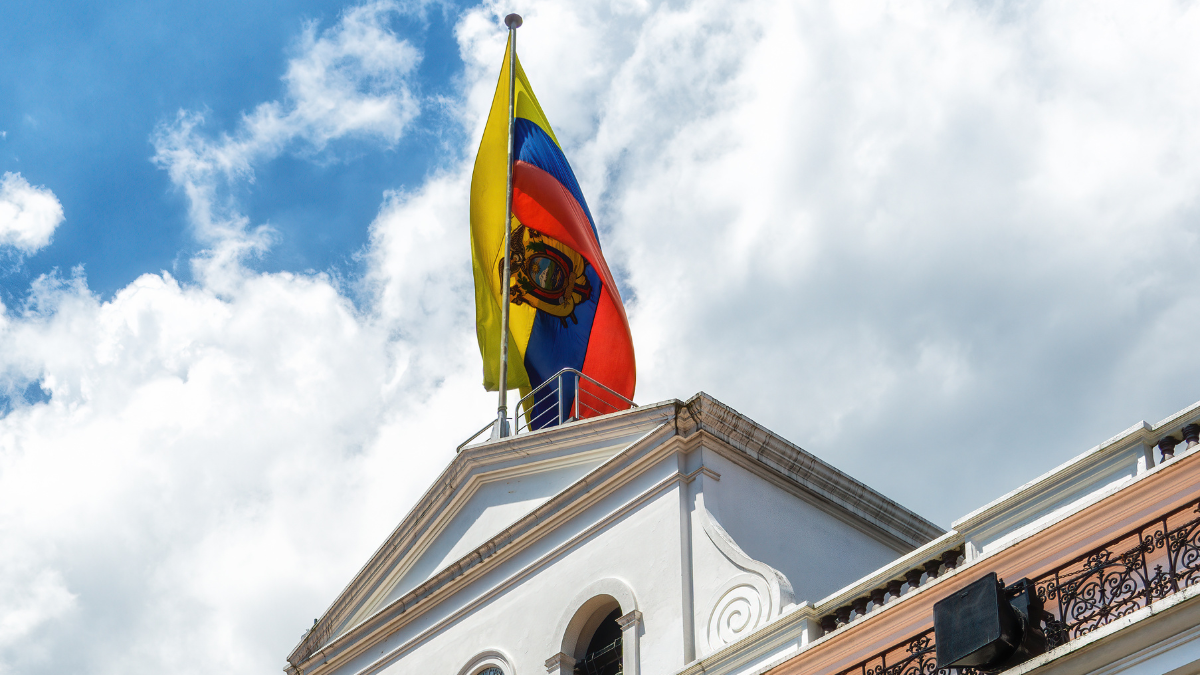Amenaza al espacio cívico en Ecuador: proyecto de ley restringe el trabajo de la sociedad civil

(ENGLISH BELLOW)
Las redes Alianza Regional por la libre expresión e Información, IFEX-ALC y Voces del Sur, que defienden y promueven la libertad de expresión en América Latina y el Caribe, manifestamos nuestra profunda preocupación por el proyecto de “Ley Orgánica para el Control de Flujos Irregulares de Capitales”, presentado por el Presidente de Ecuador Daniel Noboa y actualmente en trámite en la Asamblea Nacional del Ecuador,y exhortamos a los miembros de la Asamblea a votar en contra de dicha iniciativa.
Aunque la iniciativa se ha planteado como una medida para combatir el lavado de activos, el proyecto establece controles excesivos y punitivos sobre fundaciones y organizaciones sin fines de lucro, sin diferenciar por tamaño o naturaleza, lo que puede afectar gravemente a organizaciones comunitarias y defensoras de derechos humanos.
Nuestras principales preocupaciones se resumen en los siguientes puntos:
- Se trata de una normativa con enfoque de control y castigo, sin análisis de riesgo y que no se ha consultado con la sociedad civil.
- Impone requisitos financieros y administrativos propios del sistema bancario, inviables para organizaciones pequeñas.
- Estigmatiza el trabajo de las organizaciones de la sociedad civil, al sugerir, sin evidencia, vínculos con actividades criminales o “desestabilización” del país.
- Las disposiciones del proyecto de ley son vagas, dejando un amplio margen de aplicación por parte de las autoridades. Por ejemplo, en el caso de la información que deben suministrar las organizaciones, esto podría comprometer información sensible de personas en situación de riesgo que son apoyadas por las organizaciones.
- Vulnera el derecho a la libertad de asociación, protegido por la Constitución ecuatoriana y el artículo 16 de la Convención Americana sobre Derechos Humanos, al contemplar sanciones desproporcionadas como la disolución por incumplimientos administrativos.
Esta iniciativa de ley se enmarca en una preocupante tendencia regional de cierre del espacio cívico. Varios gobiernos latinoamericanos han impulsado normativas que imponen requisitos administrativos y financieros desproporcionados a las organizaciones de la sociedad civil, dificultando el acceso al financiamiento, además de otorgar amplios poderes de control a entes estatales. Estas medidas, lejos de fomentar la transparencia, han sido utilizadas como instrumentos de censura y represión. Algunos ejemplos de esta tendencia son las leyes aprobadas en Nicaragua, Venezuela, Paraguay y más recientemente Perú y El Salvador. En este contexto, este proyecto de ley en Ecuador se suma a una peligrosa deriva regional que debe ser enfrentada con urgencia.
Las redes firmantes instamos a la Asamblea Nacional del Ecuador a votar en contra de este proyecto de ley. El proceso para aprobar una ley de esta naturaleza debe estar precedido por debate amplio, participativo y transparente, en el que se escuchen las voces de la sociedad civil y se armonicen las disposiciones legales con los estándares internacionales, incluidas las recomendaciones del Grupo de Acción Financiera Internacional (GAFI), que enfatizan la necesidad de un enfoque basado en riesgos, no en sospechas generalizadas.
Hacemos un llamado a la comunidad internacional, a los órganos del Sistema Interamericano y de Naciones Unidas, así como a los gobiernos de la región a pronunciarse contra esta grave regresión.
La sociedad civil ecuatoriana es un pilar fundamental de la democracia. Cualquier legislación que regule su funcionamiento debe fortalecerla, no debilitarla.
Ecuador’s civic space under threat: Bill restricts civil society activities
We, the Alianza Regional por la Libertad de Expresión e Información, IFEX-ALC, and Voces del Sur, as networks that defend and promote freedom of expression in Latin America and the Caribbean, voice our deep concern over the draft “Organic Law for the Control of Irregular Capital Flows” introduced by Ecuadorian President Daniel Noboa in the National Assembly, where it is currently under consideration, and we urge lawmakers to vote against this initiative.
While presented as a measure for combating money laundering activities, the bill imposes excessive and punitive controls on foundations and non-profit organizations, regardless of their size or nature, thus seriously affecting community-based and human rights advocacy organizations.
Our mains concerns are summarized as follows:
- The proposed law focuses on control and penalization, with no risk assessment, and was drafted without having consulted civil society;
- It imposes financial and administrative obligations typical of the banking system and which cannot be feasibly met by small organizations;
- It stigmatizes the work of civil society organizations by suggesting, without evidence, connections to criminal activities or involvement in actions to “destabilize” the country;
- The bill’s provisions are vague, giving the authorities wide discretion in enforcing them. For example, in the case of the information that organizations will be required to disclose, this could mean compromising sensitive data of vulnerable individuals supported by the organizations;
- It undermines the right to freedom of association, protected under the Ecuadorian Constitution and Article 16 of the American Convention on Human Rights, by stipulating disproportionate penalties, such as dissolution if an organization fails to comply with administrative requirements.
This draft legislation is part of an alarming regional trend of restriction of the civic space. Several Latin American governments have furthered regulations that impose disproportionate administrative and financial requirements on civil society organizations, thus hindering access to funding, in addition to granting state bodies broad controlling powers. These measures, far from promoting transparency, have been used as instruments of censorship and repression. Some examples of this trend are the laws passed in Nicaragua, Venezuela, Paraguay, and, most recently, Peru and El Salvador. In this context, the bill currently under discussion in Ecuador joins a dangerous regional tendency that must be addressed urgently.
The undersigned networks urge the National Assembly of Ecuador to vote against this bill. The process for passing a law of this nature must be preceded by a broad, participatory, and transparent debate, in which all the voices of civil society are heard and legal provisions are aligned with international standards, including the recommendations of the Financial Action Task Force (FATF), which emphasize the need for a risk-based approach, not one based on sweeping suspicions.
We call on the international community and the bodies of the inter-American system and the United Nations, as well as on the governments of the region, to speak out against this seriously regressive measure.
Ecuador’s civil society is a cornerstone of democracy. Any legislation that regulates its activities must seek to strengthen it, not weaken it.
Signatures:
Alianza Regional por la Libertad de Expresión e Iinformación
IFEX-ALC
Voces del Sur



